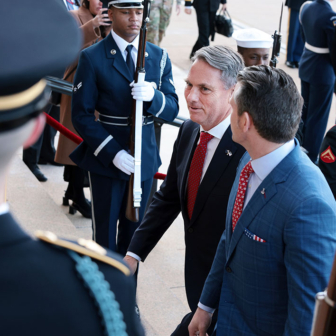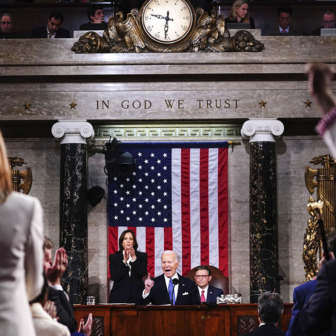The stories behind the stories are often the most intriguing.
In 2008, Michael Wolff published a book called The Man Who Owns the News: Inside the Secret World of Rupert Murdoch. Wolff had benefited from far greater access to Murdoch and his family than any of the magnate’s earlier biographers. He taped more than fifty hours of interviews with Rupert himself, spoke to all immediate family members, and put questions to senior company executives.
In an article in GQ three years later, Wolff revealed that he received this level of cooperation because Murdoch and others close to him didn’t want Murdoch’s legacy “forever yoked” to Fox News and its powerful head, Roger Ailes. The biography would be a weapon in the “increasing war” against Ailes. Wolff acknowledged that he had made “a devil’s bargain not to talk to Ailes.”
It is plausible that Murdoch’s inner circle was disillusioned with Fox News and Ailes. Rupert’s main focus during 2007, dwarfing everything else, was his long-cherished dream of owning the Wall Street Journal, and he was keen to ease fears among the paper’s board members that he would dumb it down.
Moreover, Fox was on the losing side of the election that swept Barack Obama to victory. Even before his inauguration, the network was abandoning professional standards, becoming more propagandistic and, as the election had shown, increasingly out of touch with majority opinion. Fox went on to nurture and support the extreme-right Republican faction, the Tea Party, even helping it appeal for funds. It aired the groundless “birther” theories that Obama wasn’t born in the United States and was therefore ineligible to be president.
Yet the only member of the family to publicly express any criticism during this period was Murdoch’s son-in-law, Matthew Freud, husband of Murdoch’s daughter Elisabeth, who said in 2010, “I am by no means alone within the family or the company in being ashamed and sickened by Roger Ailes’s horrendous and sustained disregard of the journalistic standards that News Corp, its founder and every other global business aspires to.”
Those comments were immediately and forcefully disowned by Rupert, and he subsequently gave Ailes a large bonus and a pay rise. Any lingering internal disillusion with Fox News was snuffed out by the results of the 2010 midterm elections, in which the Republicans gained an extra sixty-three seats in the House of Representatives, the biggest success of its kind since 1948. Fox News hosted a televised victory party with many Republican candidates and officials. Never again during Ailes’s tenure were there internal rumblings of any significance.
While Murdoch’s defence of Ailes at the time may have been a commercial necessity, he never in subsequent years showed any inclination to distance himself. In 2016, following Ailes’s resignation in disgrace after allegations of sexual harassment, Murdoch had the chance to change the network’s approach, as his son James was reportedly urging him to do. Instead, he kept change to the minimum. “We’re not changing direction,” he said a few months later. “That would be business suicide.”
But if Murdoch’s aim was to enhance his own legacy, then selecting Wolff as authorised biographer was wrong-headed in every respect. Wolff — once described in the New York Times as “a prime piranha in the Manhattan media pond” and by high-profile magazine editor Tina Brown as “the sour savant of American media” — had demonstrated much greater skill at tearing down reputations than at building them up.
Wolff’s main attempt to distance Murdoch from Fox News comes in the last few pages of the book when he suddenly asserts that the Murdoch children, his wife Wendi Deng Murdoch and even Murdoch himself were all “liberals,” a term he conspicuously fails to define. The claim is made without elaboration or any evidence (except that some of them supported Obama). It is a lame and unconvincing note to end on.
Rupert was widely reported to dislike the book. Ailes, on the other hand, had no reason to be disappointed. Wolff notes several times that the one person in his employment whom Murdoch never interferes with is Ailes. He even says Ailes is “possibly the one man of whom Murdoch is afraid.” Going further, he claims that Murdoch had “a crush on Ailes. For a very long time, having dinner with Ailes is the most galvanising thing in Murdoch’s life — it makes him feel in the game, it’s pure pleasure.” There’s more: “Murdoch backs [Ailes] all the way” because of Fox News’s success.
Whoever suggested Wolff could write a book distancing Murdoch from Ailes must have been unaware of just how strong the relationship between Ailes and Wolff already was. Wolff describes how he got to know Ailes in 2001:
I’d written something about him that he didn’t like, but then he invited me to lunch. At that first lunch I thought, Oh my God, this is gold. First thing, he’s incredibly knowledgeable about the media business, insightful about everybody, couldn’t stop talking. The gossip flowed in a non-stop way, and I took every opportunity in the subsequent years to sit down with him. So we became friends.
Wolff had another blockbuster success in 2018; again his degree of access was marvelled at, and again Ailes played a central part. Fire and Fury was probably the biggest-selling book on the early years of the Trump presidency. At the book’s centre is an individual who is intellectually, emotionally and morally unfit to be president. Wolff’s access to Trump’s staff and his revelation of their intensely negative view of the president are the book’s core.
Even before it was published, Fire and Fury created a furore. When Trump threatened to sue Wolff for defamation and invasion of privacy, the publisher simply brought forward the release date. High sales were guaranteed.
Graydon Carter, ex-editor of Vanity Fair, summed it up: “The mystery is why the White House let him in the door.” Once again Ailes figures prominently. According to Wolff, Steve Bannon and Ailes were guests at Wolff’s home for dinner in January 2017, and Wolff suspected that Ailes told Bannon that Wolff was someone he could trust. Up until his death Ailes was a “terrific source” for Wolff, who also had many conversations with Bannon. His closeness to the two men opened other doors.
Now Wolff has published The Fall: The End of Fox News — and the hero of this book is, yes, Roger Ailes. Ailes is an absentee hero: forced to resign from Fox News in 2016, his departure sweetened by a US$40 million payout, he died after a fall in 2017. But not only is he the most quoted figure in the book, he sets the standard by which others are judged and inevitably found wanting.
For Wolff, Ailes was the key to the success of Fox News: his “bravura leadership” created “brilliantly marketed and packaged news for the better part of twenty years.” Moreover, “the ousting of Roger Ailes in July 2016 presaged the end of Fox and conservative media’s industry dominance.” Ailes was “a sui generis talent [and] without him the playing field was suddenly level.”
This last claim proved inaccurate. For the four years of the Trump presidency — the years following Ailes’s departure — Fox had bigger audiences and more influence than at any other time. The direct line into the White House gave the network a centrality in the news mix that it had never enjoyed before.
Since Trump’s defeat, the network has hit much rougher times, and a lack of leadership, vision and strategy has become more obvious. The certainties of the Ailes era are being recalled nostalgically. But it is far from clear how Ailes would have responded. Would he have peddled election fraud to please the audience’s prejudices? Would he have responded differently to the Dominion Voting Machines lawsuit, which produced the biggest corporate defamation payout in American history?
Or are the network’s problems simply the result of his successors’ lack of ability? Ailes’s widow Beth is in no doubt. Wishing her husband a happy heavenly birthday last May, she said, “It took you twenty years to build Fox News into the powerhouse that it was and only six years for the Murdochs to wreak havoc. Rupert thought he could do your job. What a joke. He has the chequebook but could never come close to your genius.” The Murdochs “weren’t born here and don’t have the same pedigree” as Roger.
Wolff is also dismissive of the Murdochs. Rupert is too old, is often disengaged for long periods, and isn’t capable of sustained leadership. Lachlan and James — Tweedledum and Tweedledumber, according to Ailes — are even worse. Lachlan “is so absentee, fundamentally, living in Australia and running an American company,” more interested in spearfishing than running the company, incapable of making decisions. James, who left the company in early 2018, is aggressive and arrogant, and becomes furious when anyone contradicts him; his empty rhetoric about making Fox a force for good has no business sense or strategy behind it. The other key managers, both of the business and its journalists, lack vision, courage and ability.
Wolff was approached a decade and a half ago to write a book that would distance Murdoch from Ailes. In the latest book he has come full circle, a spear carrier for the Ailes legacy, and part of that involves demeaning the Murdochs. •




